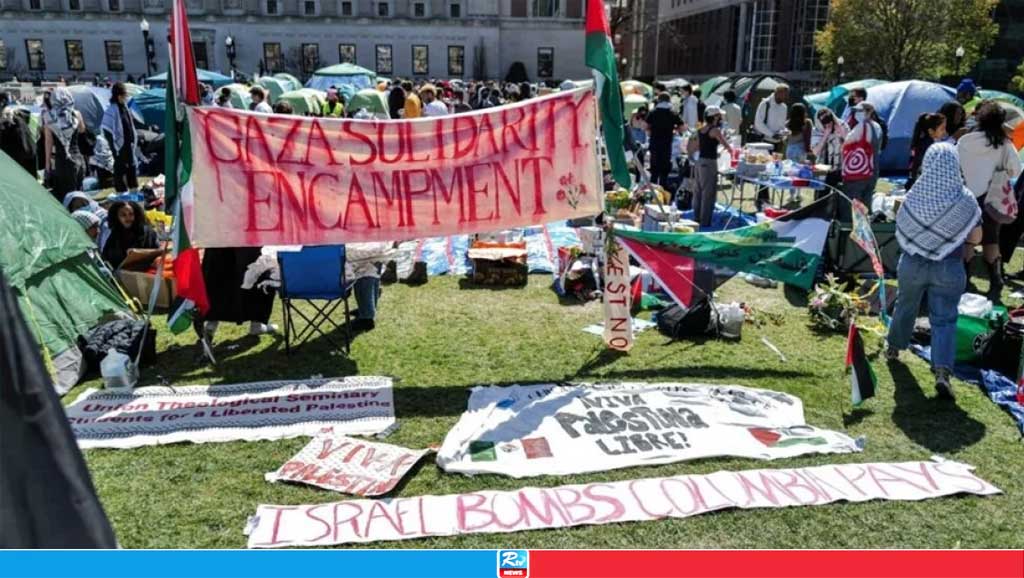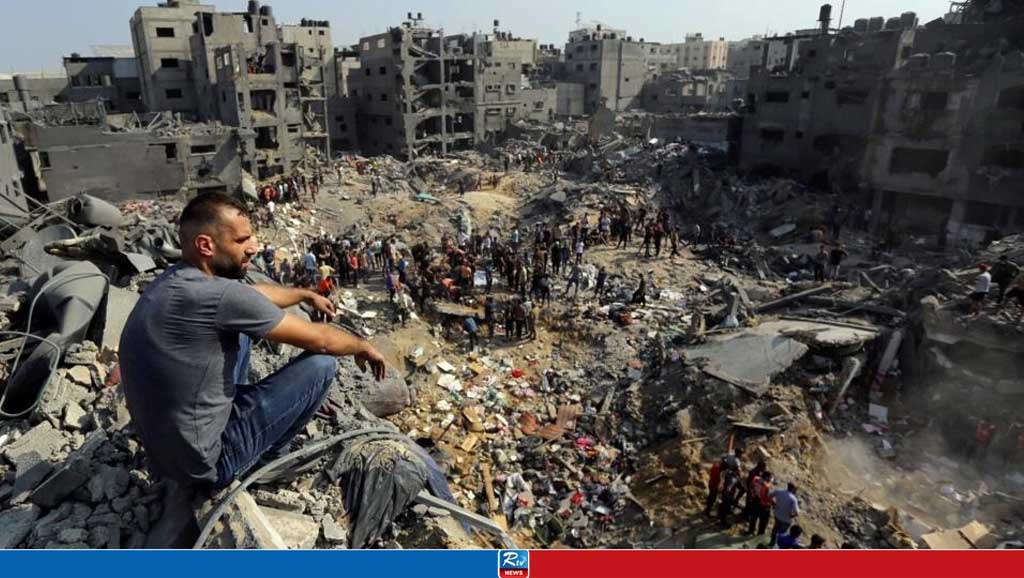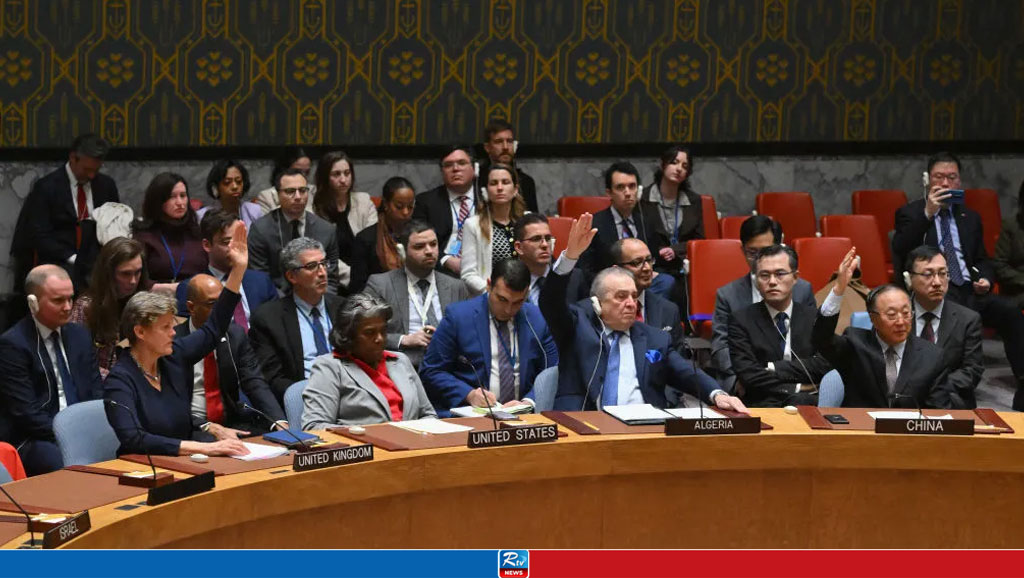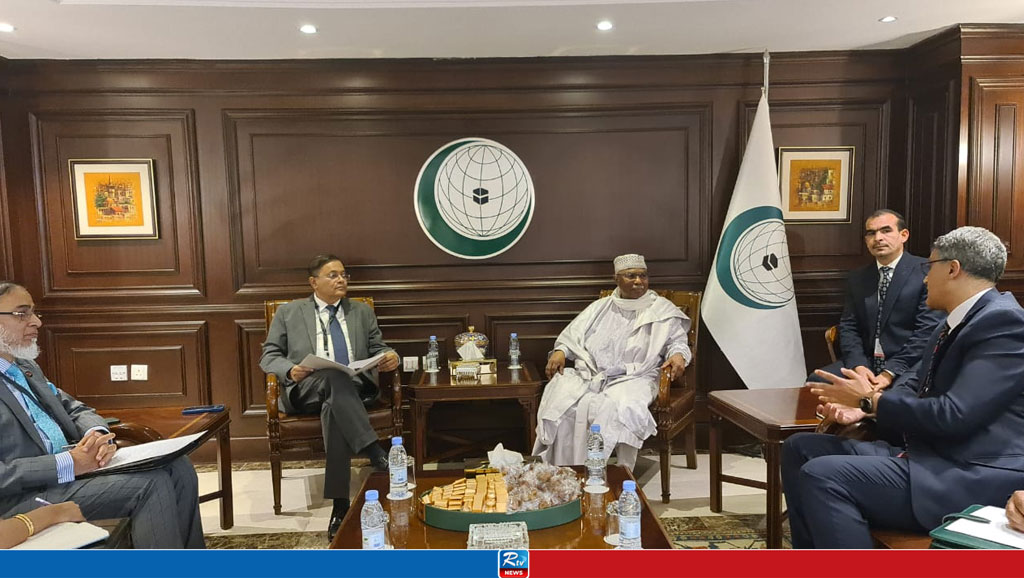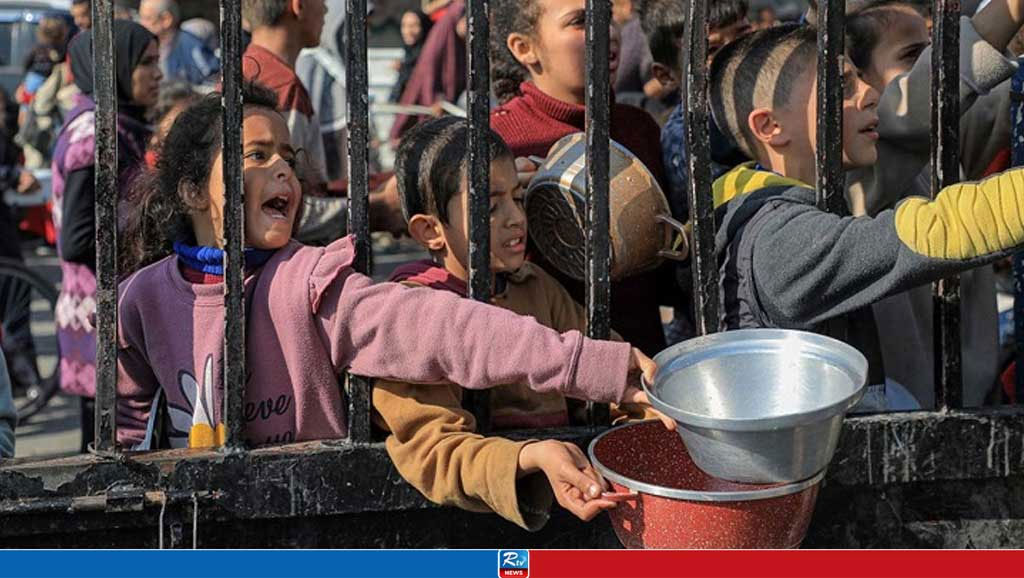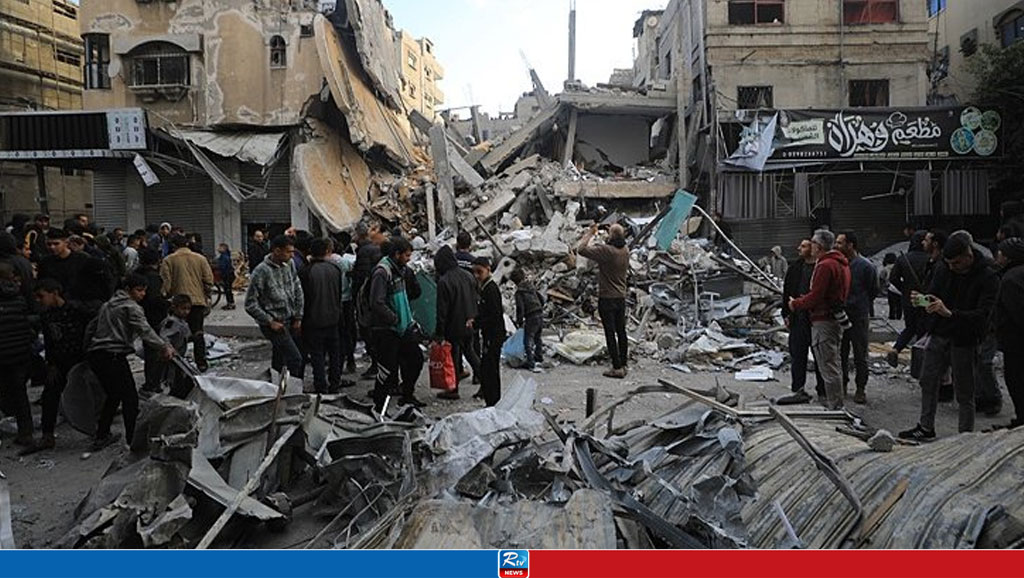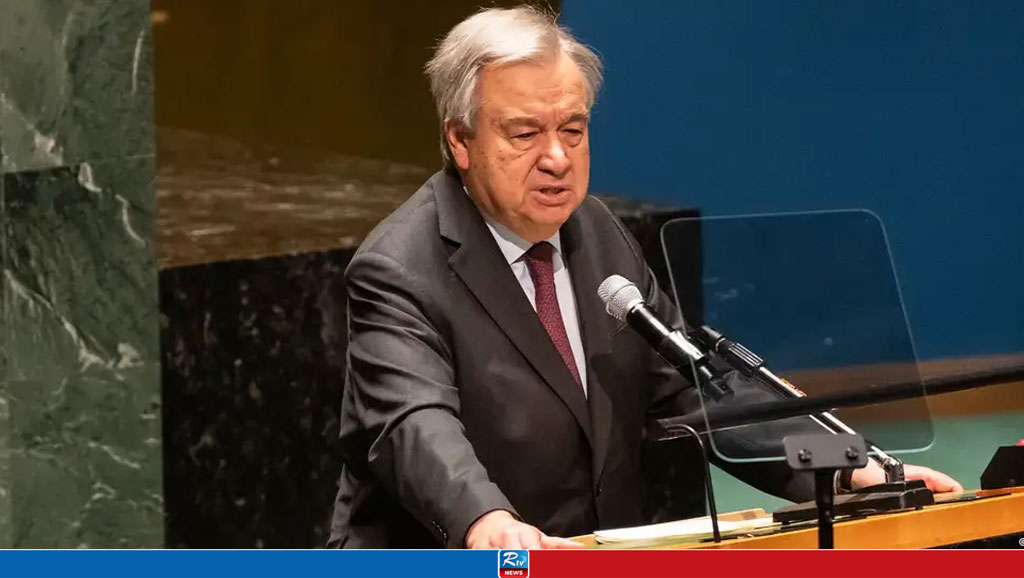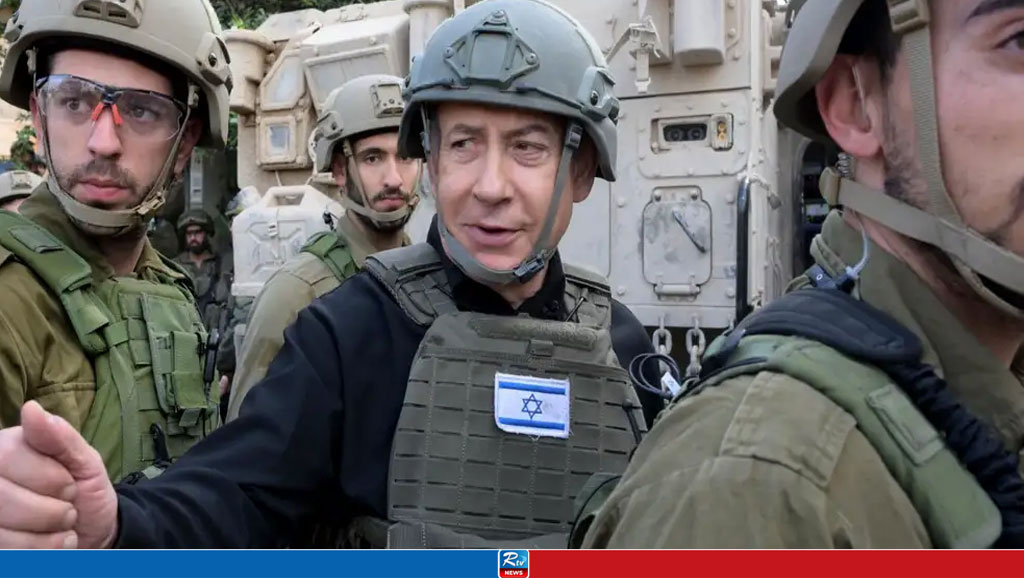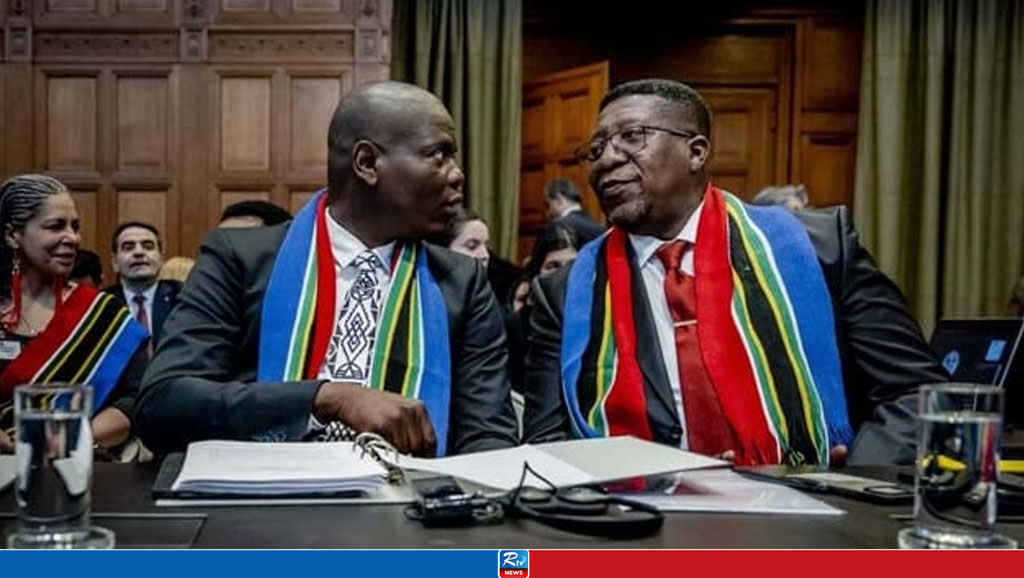Children starving to death in northern Gaza: WHO
Children are dying of starvation in northern Gaza, the World Health Organization (WHO) chief says.
Tedros Adhanom Ghebreyesus said the agency's visits over the weekend to the Al-Awda and Kamal Adwan hospitals were the first since early October.
In a post on social media, he spoke of "grim findings".
A lack of food resulted in the deaths of 10 children and "severe levels of malnutrition", while hospital buildings have been destroyed, he wrote.
The Hamas-run health ministry in Gaza reported on Sunday that at least 15 children had died from malnutrition and dehydration at the Kamal Adwan hospital.
A sixteenth child died on Sunday at a hospital in the southern city of Rafah, the Palestinian official news agency Wafa reported on Monday.
Dr Tedros reported "severe levels of malnutrition, children dying of starvation, serious shortages of fuel, food and medical supplies, hospital buildings destroyed" in northern Gaza, where an estimated 300,000 people are living with little food or clean water.
"The lack of food resulted in the deaths of 10 children," he posted on X, formerly known as Twitter.
The visits were the WHO's first in months "despite our efforts to gain more regular access to the north of Gaza", he wrote.
"The situation at Al-Awda Hospital is particularly appalling, as one of the buildings is destroyed," he added.
The UN warned last week that famine in Gaza was "almost inevitable".
A senior UN aid official warned that at least 576,000 people across the Gaza Strip - one quarter of the population - faced catastrophic levels of food insecurity and one in six children under the age of two in the north were suffering from acute malnutrition.
And the regional director of the UN's children's agency, Unicef, said "the child deaths we feared are here, as malnutrition ravages the Gaza Strip".
"These tragic and horrific deaths are man-made, predictable and entirely preventable," Adele Khodr said in a statement on Sunday.
On Saturday, the US a launched its first airdrop of humanitarian aid into Gaza - including more than 38,000 meals.
However, aid agencies have said these drops - which have also previously been carried out by the UK, France, Egypt and Jordan - are an inefficient way of getting supplies to people.
The deliveries themselves have sometimes turned deadly. Last week, at least 112 Palestinians were reportedly killed when large crowds descended on lorries carrying aid while Israeli tanks were present.
Israel said the tanks fired warning shots but did not strike the lorries and that many of the dead were trampled or run over.
But this has been disputed by Hamas, which said there was "undeniable" evidence of "direct firing at citizens".
Some aid agencies have been facing difficulties with the authorities. Philippe Lazzarini, the head of the UN's main human rights agency in the Gaza Strip, UNRWA, on Monday accused the Israeli government of trying to "eliminate" its presence in Gaza.
Israel has long accused different branches of the United Nations, including Unrwa, of bias and even of antisemitism. Several western countries, including the UK, have paused funding to UNRWA after Israel accused some staff of roles in the 7 October attacks.
Mr Lazzarini said that this was not just in response to "neutrality breaches of some of the staff" but had a wider political motive, which included plans to "eliminate the status of refugees and make sure that this is not part of a final political settlement".
He added that dismantling his organisation would lead to the collapse of the entire humanitarian response on Gaza.
The Israeli military launched a large-scale air and ground campaign to destroy Hamas - which is proscribed as a terrorist organisation by Israel, the UK, US and others - after the group's gunmen killed about 1,200 people in southern Israel on 7 October and took 253 back to Gaza as hostages.
More than 30,500 people, mostly women and children, have been killed in Gaza since then, according to the territory's health ministry.
Source: BBC
05 Mar 2024,20:09



















 Live Tv
Live Tv
